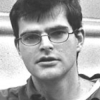Scott Stossel

Scott Stossel
Scott Hanford Stossel is an American journalist and editor. He is the editor of The Atlantic magazine, and previously served as executive editor of The American Prospect magazine. He is a graduate of Harvard University. He is the son of Anne Hanford and Dr. Thomas P. Stossel, the brother of cartoonist Sage Stossel, and the nephew of TV journalist John Stossel. In 2014, Stossel was awarded the Erikson Institute Prize for Excellence in Mental Health Media...
NationalityAmerican
ProfessionJournalist
Date of Birth7 August 1969
CountryUnited States of America
Even as economic and political freedoms have advanced enormously and generated huge benefits for humanity, they've also created a great deal of anxiety because every time you have to make a choice, there's anxiety about making the wrong one.
The fear of vomiting, which for me is one of the most original and most acute of my fears, is actually fairly common. Emetophobia, it's called, and by some estimates, it's the fifth most common specific phobia.
Even though my mom herself was anxious, I think she didn't know how to deal with it in her kid, and my dad just had no conception of what this was about, and sort of didn't even want to acknowledge it.
Generally speaking, the anxiety will pass, which is easy for me to say when I'm not in the middle of an anxiety attack. When you're in the throes of one, it's hard to feel anything other than utter misery and terror.
To some people, I may seem calm. But if you could peer beneath the surface, you would see that I'm like a duck--paddling, paddling, paddling.
To say that my anxiety is reducible to the ions in my amygdala”—the home of the fight-or-flight reflex—“is as limiting as saying that my personality or my soul is reducible to the molecules that make up my brain cells or to the genes that underwrote them,
It is an irony of medical history that even as Freud's later work would make him the progenitor of modern psychodynamic psychotherapy, which is generally premised on the idea that mental illness arises from unconscious psychological conflicts, his papers on cocaine make him one of the fathers of biological psychiatry, which is governed by the notion that mental distress is partly caused by a physical or chemical malfunction that can be treated with drugs.
Somehow, in many of those near-miss instances, I’ve managed to fight through and continue. But in all these situations, even when they’re apparently going well, I feel I am living on the razor’s edge between success and failure, adulation and humiliation—between justifying my existence and revealing my unworthiness to be alive,
Anxiety has afflicted me all my life.
There is an element in which anxiety co-represents with aspects of my personality I wouldnt want to give up. It allows you to have foresight. I may not be as empathetic. Its hard to figure out the difference between pathology and personality.
There are lots of things, including changing the kind of inner dialog, that can mitigate anxiety. And yes, there are people who have the glass half full and glass half empty, and I'm afraid the glass is going to break and I'll cut myself on the shards.
Many nights, I would begin the evening fueled by caffeine and nicotine, which I needed to propel me out of torpor and hopelessness - only to overshoot into quaking, quivering anxiety.
One challenge is trying to extend access to more poorly served communities in rural areas and in the inner city. Sometimes you have kids who are suffering from trauma and post-traumatic stress disorder, and they have no way of getting access to the remedies that are available to them.
I have, since the age of about 2, been a twitchy bundle of phobias, fears, and neuroses. And I have, since the age of 10, when I was first taken to a mental hospital for evaluation and then referred to a psychiatrist for treatment, tried in various ways to overcome my anxiety.